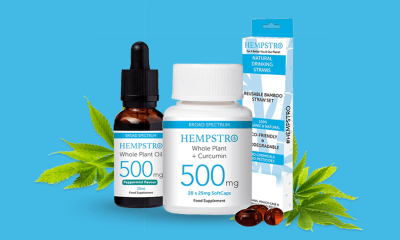FOOD
‘Like using a sledgehammer to crack a nut’ – experts respond to new CBD guidance
The Food Standards Agency (FSA) has published new guidance for CBD novel food applications – including confirmation that these must include toxicology data. In the latest guidance for CBD companies ahead of the March 2021 deadline, the FSA has confirmed that novel food applications will not be successful without the inclusion of toxicology safety data. […]
The post ‘Like using a sledgehammer to crack a nut’ – experts respond to new CBD guidance appeared first on Cannabis Health News.
The Food Standards Agency (FSA) has published new guidance for CBD novel food applications – including confirmation that these must include toxicology data.
In the latest guidance for CBD companies ahead of the March 2021 deadline, the FSA has confirmed that novel food applications will not be successful without the inclusion of toxicology safety data.
In February 2020, the UK Food Standards Agency set the deadline for the industry to apply for European Union safety evaluations for “novel food” status.
The new guidance, published on Thursday 24 September, highlights that applicants will need to include ‘details of the toxicological studies they have undertaken, or propose to undertake’ adding that without this it is ‘unlikely we will be able to validate an application’.
The FSA also states that applicants should consult the EFSA’s guidance on ‘the usual application process for all novel foods’, which includes the details of a 90 day rodent safety study.
Only products with this validation will be allowed on the market after 31 March 2021 – but the cost of generating this data is estimated to be between £300,000 and £1million.
The guidance has been welcomed by the Association for Cannabinoid Industry (ACI) which this week announced the launch of its ‘landmark’ safety study with a consortium of CBD companies.
In partnership with Advanced Development and Safety Laboratory (ADSL), the study will address the existing gaps in data identified by the Government Committee on Toxicity (COT) – including whether CBD causes potential drowsiness, liver toxicity or has any interaction with other drug substances.
It will also provide the safety information mandated by the novel foods application process.
In a statement the ACI said it was ‘leading the way’ for the global CBD industry.
“The safety information generated in this study will respond to future demands of regulatory authorities in the US and EU,” it said, adding that the approach would also minimise animal testing by allowing all the members to use the data from one OECD 408 rodent study, instead of many companies conducting their own.
Steve Moore, strategic counsel for the ACI described it as a ‘transformational’ time for the industry, he commented: “We’re seeing evidence from studies that shows there is a wide variance at the moment in terms of product quality, so it’s very obvious to us that regulation will improve the industry.
He continued: “It is going to be a transformation time for the sector.
“It’s clear that not all the organisations currently operating in this marketplace are going to be able to meet all the regulatory requirements and the industry will be structured very differently this time next year.”
With the cost of generating the toxicology data in the hundreds of thousands of pounds, there is widespread concern that the FSA regulations will drive smaller, ethical CBD companies out of business.
Professor Mike Barnes, head of the Medical Cannabis Clinicians Society, believes we should be promoting a more diverse and ‘dynamic’ industry to boost the economy.
“The CBD industry is in need of regulation. However, the new novel food regulations are like taking the proverbial sledgehammer to crack a nut,” he said
“If implemented as stated it will drive most, if not all, of the small cbd suppliers and retailers out of business and plays into the hands of ‘Big Cannabis’ – those that can afford the huge fees of the ACI for example.”
He added: “In a post-Covid era we should be encouraging a new dynamic industry like the CBD sector, which creates jobs and tax income and provides the consumer with choice.
“The novel food regulations and those who support them are doing the industry no favours.”
Read the latest FSA guidance at www.food.gov.uk/business-guidance/cannabidiol-cbd
The post ‘Like using a sledgehammer to crack a nut’ – experts respond to new CBD guidance appeared first on Cannabis Health News.










